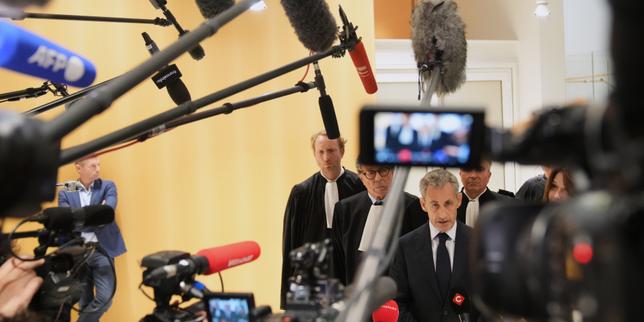Nicolas Sarkozy Receives Five-Year Sentence for Libyan Campaign Financing
Nicolas Sarkozy has been sentenced to five years for Libyan campaign financing, following a series of legal challenges.
- • Sarkozy sentenced to 5 years for Libyan funding in 2007 campaign.
- • Conviction upheld by the Cour de cassation, making it definitive.
- • Actions found to undermine public trust in political figures.
- • Sarkozy served under electronic surveillance at home during his sentence.
Key details
Nicolas Sarkozy, the former President of France, has been sentenced to five years in prison for his involvement in illicit campaign financing from Libya during his 2007 presidential bid. The decision followed a series of legal battles, ultimately upheld by the Cour de cassation, which solidified the conviction stemming from charges of active corruption and influence trafficking. Initially, in May 2023, a Paris court sentenced Sarkozy to three years in prison, with two years suspended, a sentence that was confirmed as definitive after his appeals were rejected in December 2024.
According to reportings from Le Monde, Sarkozy has been noted to serve his sentence under electronic surveillance at home, indicating that he would be allowed to fulfill it outside of a traditional prison environment. His defense team has taken steps to appeal to the European Court of Human Rights; however, this does not alter the current status of his sentencing.
The conviction focuses on Sarkozy's association with close associates, like Claude Guéant and Brice Hortefeux, who were implicated in meetings with Libyan officials, including Abdallah Senoussi. This interaction raised serious concerns surrounding the potential illicit financing of Sarkozy's campaign. While the court did not conclusively link Libyan funds to his campaign, it acknowledged financial transactions that coincided with the electoral timeline and an unexplained sum of 35,000 euros at the campaign's close.
The gravity of the court's findings was emphasized by the judgement which described the offenses as exceptionally severe, stating they undermine public trust in elected officials. The court acquitted Sarkozy of passive corruption, specifying that the arrangements were made when he was a candidate and not a public official, amidst a backdrop of significant legal ramifications for his political career.
This article was translated and synthesized from French sources, providing English-speaking readers with local perspectives.
Source articles (2)
Source comparison
Details of the court's findings
lemonde.fr
"The court found Sarkozy guilty of 'active corruption of a magistrate and active influence trafficking'."
france24.com
"Sarkozy was acquitted of passive corruption and the court found insufficient evidence of illicit foreign public fund diversion."
Latest news
Pau's Local Election Campaign Gathers Momentum Amid Broader Political and Economic Concerns
French Companies and Regions Accelerate Efforts in Nature-Related Economic Transition
France Heightens Military Readiness Amid Iran Conflict, Pledges Defense Support to Gulf States
Jean-Luc Mélenchon Faces Accusations of Antisemitism Over Joke on Raphaël Glucksmann's Name
Tensions and New Faces Mark the 2026 French Municipal Elections
France Bolsters Military Presence in Gulf Following Iranian Drone Attacks
The top news stories in France
Delivered straight to your inbox each morning.


